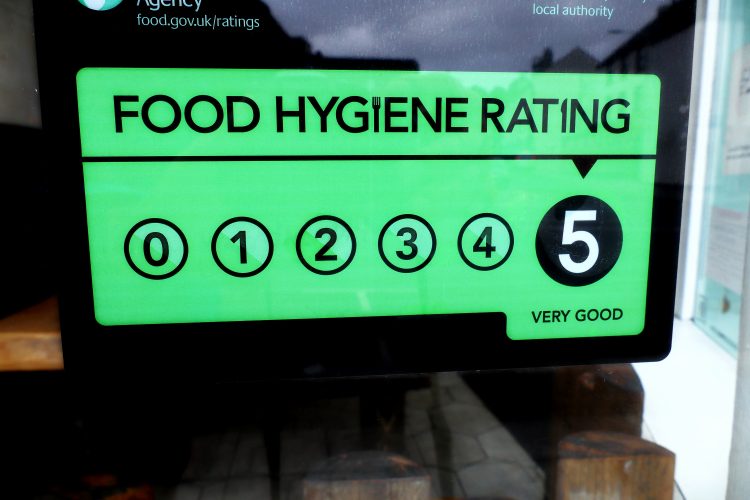FSA unveils updated Code of Practice
- Like
- Digg
- Del
- Tumblr
- VKontakte
- Buffer
- Love This
- Odnoklassniki
- Meneame
- Blogger
- Amazon
- Yahoo Mail
- Gmail
- AOL
- Newsvine
- HackerNews
- Evernote
- MySpace
- Mail.ru
- Viadeo
- Line
- Comments
- Yummly
- SMS
- Viber
- Telegram
- Subscribe
- Skype
- Facebook Messenger
- Kakao
- LiveJournal
- Yammer
- Edgar
- Fintel
- Mix
- Instapaper
- Copy Link
Posted: 8 June 2023 | Grace Galler | No comments yet
The Food Standards Agency has released an updated Code of Practice that focuses on inspection efforts for higher risk food businesses.


Focusing inspection efforts on higher risk food businesses, the Food Standards Agency (FSA) has updated its Food Law Code of Practice for local authorities in England and Northern Ireland.
Food standards controls are checks carried out by local authorities to ensure that food produced and sold by food businesses is safe and what it says it is.
The FSA has claimed that the revised Code of Practice will “help local authorities to take a more risk-based and intelligence-driven approach to inspection, focusing their time and resources on food businesses that pose the greatest risk to consumers”.
The Agency hopes that the new model will drive more frequent checks on non-compliant businesses, whilst simultaneously reducing the checks on businesses that can demonstrate good levels of sustained compliance.
“It will give local authorities greater flexibility to check compliance in different ways, for example through remote checks where appropriate, and it will increase the use of intelligence to inform understanding of risk in the food chain.” The FSA claims that this decision will “help to ensure that action taken at the right stage of the supply chain for example one intervention at the single point of manufacture or import rather than multiple interventions in a range of retail outlets”.
This decision was piloted with seven local authorities in England and Northern Ireland last year. According to the FSA, the pilot indicated that the new model is “more effective at directing officers to businesses where they are more likely to find non-compliance”.
Commenting on the revised Food Law Code of Practice, Katie Pettifer, FSA Director of Strategy and Regulatory Compliance, said: “Local authorities are a critical line of defence against inauthentic or adulterated food.
“The FSA is very concerned about the decline in local authority resources for food standards work. The number of professional staff working on food standards in local authorities has halved over the last decade or so. It is vital that local authorities have the resources they need to protect consumers.”
According to Pettifer, the updated guidance will “enable local authorities to use their resources more effectively, targeting their efforts towards the greatest risks within the supply chain”.
“The new model emphasises the use of intelligence to disrupt the supply of fraudulent or unsafe food further up the food chain, before it hits the shelves,” Pettifer continued.
She claimed that the changes are good news for responsible businesses, stating “many businesses with a good track record of compliance will face less frequent inspections, while those with a poor track record will face greater scrutiny. ”
David Pickering, Buckinghamshire and Surrey Council and Chartered Trading Standards Institute Lead Officer for Food Issues, explained that he is “pleased that [the] updated Code will support local authorities”, particularly in relation to “their efforts to target their capacity in the most efficient way to protect consumers and achieve a level playing field for businesses”.
“The new Code introduces an approach that I believe will enable us to target the resources we have to deal effectively with the food businesses that pose most risk to the marketplace,” Pickering explained.
The FSA has said that, due to the scale and complexity of the project, it intends to take a phased approach for the rollout of the new model across England and Northern Ireland. This rollout is due to start in Summer 2023.
“We recognise that local authorities will require support to transition to the new model therefore, we will be providing guidance and training on the use and implementation of the model in due course as part of the implementation process,” the FSA commented.
Looking at other parts of the UK, a pilot of the proposed food standards model with local authorities in Wales is set to “commence shortly”. The FSA has said that this pilot inform a consultation on any amendments required to the Food Law Code of Practice in Wales.
Related topics
Food Fraud, Food Safety, Quality analysis & quality control (QA/QC), Recruitment & workforce, Regulation & Legislation, retail, Trade & Economy
Related organisations
Buckinghamshire and Surrey Council and Chartered Trading Standards Institute, Food Standards Agency (FSA)








